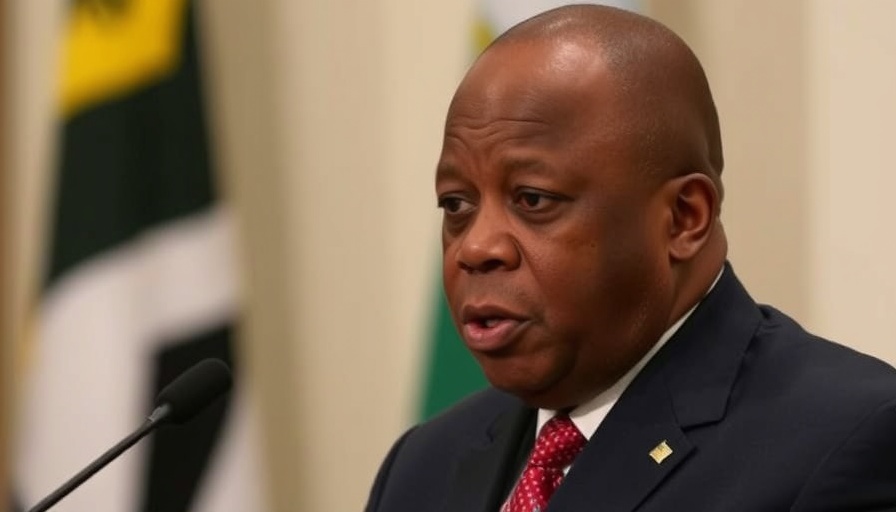
Ramaphosa’s Inquiry into Apartheid-Era Failures: A Step Towards Accountability
In a move that underscores South Africa's commitment to addressing historical injustices, President Cyril Ramaphosa has launched a commission of inquiry aimed at investigating the failures in prosecuting apartheid-era crimes. This initiative comes in the wake of persistent calls for justice from victims and activists who argue that the legal system has inadequately addressed the atrocities committed during apartheid. As South Africa grapples with its historical legacy, this inquiry could become a pivotal element in ensuring accountability and aiding in the national healing process.
What Prompted the Commission?
The decision to form this commission arises against a backdrop of ongoing social unrest. As South Africans confront issues like high unemployment rates and service delivery protests, many view historical grievances as intertwined with current sociopolitical dynamics. The commission not only seeks to shed light on past failures but also aims to connect historical injustices with present governance flaws, strengthening the argument for both social and economic reforms.
The Historical Context: Why Now?
South Africa's journey since the end of apartheid in the early 1990s has been fraught with challenges. Despite significant constitutional advancements, the lingering effects of systemic racism and inequality still permeate various societal facets. The truth and reconciliation processes of the past, while significant, left many feeling that justice had not been fully realized, particularly regarding the prosecutions tied to apartheid-era violence. Ramaphosa’s inquiry can serve as a catalyst for redressing these historical oversights, establishing a narrative that past injustices must be rectified for meaningful progress.
Relevance to Current Political Landscape
As South Africa approaches upcoming national elections, the inquiry could significantly influence the power dynamics between the ruling ANC, opposition parties like the Democratic Alliance, and the EFF. With allegations of corruption and state capture still prevalent, the inquiry serves not only as a tool for uncovering past wrongs but also a mechanism for the ANC to distance itself from these issues by demonstrating a commitment to accountability. The branding implications of this initiative cannot be overstated, as it resonates with voters who are increasingly concerned about governance integrity.
Implications for Social Justice Movements
This commission’s establishment is vital for South Africa's numerous social justice movements advocating for racial equality, gender-based violence prevention, and economic justice. The outcomes of the inquiry could energize grassroots campaigns by providing leverage against ongoing systemic issues, such as police reform and socioeconomic disparities. Moreover, the public perception of these movements could shift positively as the commission highlights the need for a systemic response to injustice.
Future Predictions: Can Justice Be Served?
Looking ahead, the findings from this inquiry will likely shape public discourse around accountability and the rule of law in South Africa. Should the commission find substantial evidence of prosecutorial negligence or systemic flaws, the implications for current government policies could be monumental. There is also the chance that fruitful recommendations will emerge, leading to real legislative changes aimed at preventing similar failures in the future.
Challenges Facing the Inquiry
Despite the positive implications, the commission may face considerable challenges. Resistance from individuals involved in past government actions and potential political pushback can obstruct its progress. Furthermore, public skepticism about the effectiveness of such inquiries, given past experiences, may complicate efforts to engage a broader audience. Overcoming these obstacles will be essential for the commission's success and for restoring public trust in the legal processes.
Actionable Insights: What Can Citizens Do?
For those invested in South Africa's political future, staying informed about the commission's proceedings and outcomes is vital. Citizens can engage by participating in community discussions, supporting advocacy groups involved in the inquiry, and demanding transparency from their elected officials. Remaining active in holding the government accountable will ensure that the voices of those who suffered grave injustices in the apartheid era are not forgotten and that their stories fuel progress and change.
Conclusion: A Hopeful Sign of Change
The establishment of this commission of inquiry is a pivotal step for South Africa in confronting its apartheid legacy. As the nation navigates through complex social, political, and economic landscapes, addressing historical wrongdoings is central to achieving enduring change. With a renewed focus on accountability, the hope is that this inquiry will not only seek to rectify past transgressions but also inspire a more just and equitable South Africa for future generations.
 Add Row
Add Row  Add
Add 




Write A Comment